第70章
Tirumala took up his abode at Penukonda,and shortly afterwards sent word to the Portuguese traders at Goa that he was in need of horses.A large number were accordingly delivered,when the despotic ruler dismissed the men to return to Goa as best they could without payment."He licensed the Merchants to depart,"writes Federici,"without giving them anything for their Horses,which when the poore Men saw,they were desperate,and,as it were,mad with sorrow and griefe."There was no authority left in the land,and the traveller had to stay in Vijayanagar seven months,"for it was necessarie to rest there until the wayes were clear of Theeves,which at that time ranged up and downe."He had the greatest difficulty in making his way to Goa at all,for he and his companions were constantly seized by sets of marauders and made to pay heavy ransom for their liberty,and on one occasion they were attacked by dacoits and robbed.
Tirumala being now with King Sadasiva in Penukonda,the nobles of the empire began to throw off their allegiance,and one after another to proclaim their independence.The country was in a state of anarchy.The empire,just now so solid and compact,became disintegrated,and from this time forward it fell rapidly to decay.
To the Portuguese the change was of vital importance.Federici has left us the following note on their trade with Vijayanagar,which Iextract from "Purchas's Pilgrims:"--
"The Merchandize that went every yeere from Goa to Bezeneger were Arabian Horses,Velvets,Damaskes,and Sattens,Armesine[335]of Portugall,and pieces of China,Saffron,and Scarletts;and from Bezeneger they had in Turkie for their commodities,Jewels and Pagodas,[336]which be Ducats of Gold;the Apparell that they use in Bezeneger is Velvet,Satten,Damaske,Scarlet,or white Bumbast cloth,according to the estate of the person,with long Hats on their heads called Colae,[337]&c."Sassetti,who was in India from 1578to 1588,confirms the others as to Portuguese loss of trade on the ruin of the city:--"The traffic was so large that it is impossible to imagine it;the place was immensely large;and it was inhabited by people rich,not with richness like ours,but with richness like that of the Crassi and the others of those old days....And such merchandise!Diamonds,rubies,pearls ...and besides all that,the horse trade.That alone produced a revenue in the city (Goa)of 120to 150thousand ducats,which now reaches only 6thousand."Couto tells the same story:[338]--
"By this destruction of the kingdom of Bisnaga,India and our State were much shaken;for the bulk of the trade undertaken by all was for this kingdom,to which they carried horses,velvets,satins and other sorts of merchandize,by which they made great profits;and the Custom House of Goa suffered much in its Revenue,so that from that day till now the inhabitants of Goa began to live less well;for paizes and fine cloths were a trade of great importance for Persia and Portugal,and it then languished,and the gold pagodas,of which every year more than 500,000were laden in the ships of the kingdom,were then worth 71/2Tangas,and to day are worth 111/2,and similarly every kind of coin."Sassetti gives another reason,however,for the decay of Portuguese trade and influence at Goa,which cannot be passed over without notice.This was the terrible Inquisition.The fathers of the Church forbade the Hindus under terrible penalties the use of their own sacred books,and prevented them from all exercise of their religion.They destroyed their temples and mosques,and so harassed and interfered with the people that they abandoned the city in large numbers,refusing to remain any longer in a place where they had no liberty,and were liable to imprisonment,torture,and death if they worshipped after their own fashion the gods of their fathers.[339]
About this period,therefore (1567),the political condition of Southern India may be thus summed up:--The Muhammadans of the Dakhan were triumphant though still divided in interest,and their country was broken up into states each bitterly hostile to the other.The great empire of the south was sorely stricken,and its capital was for ever destroyed;the royal family were refugees at Pennakonda;King Sadasiva was still a prisoner;and Tirumala,the only survivor of the "three brethren which were tyrants,"[340]was governing the kingdom as well as he could.The nobles were angry and despondent,each one seeking to be free;and the Portuguese on the coast were languishing,with their trade irretrievably injured.
Firishtah summarises the events immediately succeeding the great battle in the following words:--"The sultans,a few days after the battle,marched onwards into the country of Ramraaje as far as Anicondeh,[341]and the advanced troops penetrated to Beejanuggur,which they plundered,razed the chief buildings,and committed all manner of excess.When the depredations of the allies had destroyed all the country round,Venkatadri,[342]who had escaped from the battle to a distant fortress,sent humble entreaties of peace to the sultans,to whom he gave up all the places which his brothers had wrested from them;and the victors being satisfied,took leave of each other at Roijore (Raichur),and returned to their several dominions.The raaje of Beejanuggur since this battle has never recovered its ancient splendour;and the city itself has been so destroyed that it is now totally in ruins and uninhabited,[343]
while the country has been seized by the zemindars (petty chiefs),each of whom hath assumed an independent power in his own district."In 1568(so it is said)Tirumala murdered his sovereign,Sadasiva,and seized the throne for himself;but up to that time he seems to have recognised the unfortunate prince as his liege lord,as we know from four inions at Vellore bearing a date corresponding to 5th February 1567A.D.[344]
And thus began the third dynasty,if dynasty it can be appropriately called.